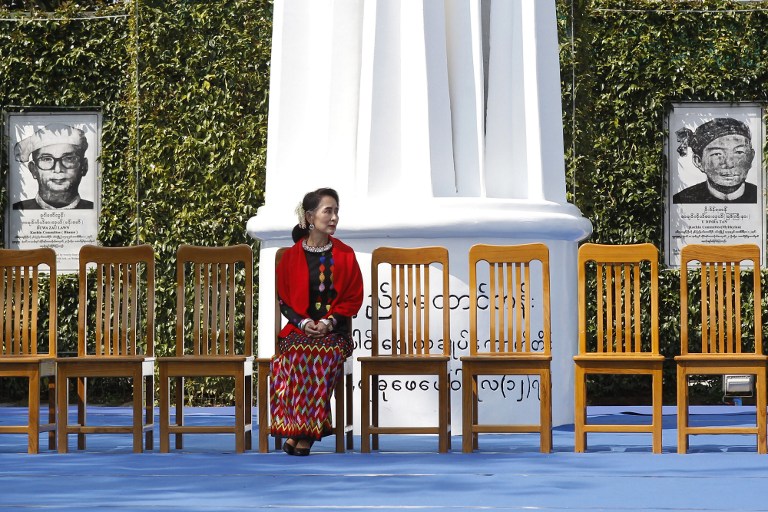Imagine that for the past 70 years you’ve been locked in a marriage founded on a contract based on equal partnership and the promise of shared prosperity. Now imagine that the moment you signed up, your partner dishonoured all those contractual obligations and took control of all decision-making in family affairs.
You’re abused, bashed and beaten.
You’re constantly told to accept that the only true spirit of the marriage is to submit to the demands and terms of the other party. When you raise your voice and try to point out the flaws in your marriage, you’re accused of trying to break up the union.
You are further bashed and beaten.
Your children are forced to learn only the other party’s language, ancestry, traditions and culture. They’re implicitly and explicitly taught that your heritage is unworthy and backward, ensuring that future generations will forget your identity and rich cultural traditions.
On your wedding anniversary each year, you are paraded in the courtyard wearing your most treasured attire; the only thing left that gives you a sense of your own identity. You show your “happy” face in front of the entire village.
Now, after so many decades, the entire village has come to learn of the abuses and the longstanding injustices inside your household. The truth could only be suppressed for so long. Under intense pressure, the other party in your marriage is forced to do something to right the wrongs of the past. On their face, the changes seemed significant, but behind closed doors, it was business as usual.
Now comes your 70th wedding anniversary; another occasion to show a happy face, another chance to wear your treasured attire. Another promise that the wrongs will be rectified over time, another promise of a happy marriage. But, again, reality unfolds solely on the other party’s terms.
Would you happily celebrate your anniversary?
Burma celebrated its 70th Union Day last week amid great uncertainties over the country’s future direction. Optimism abounded when the National League for Democracy (NLD), led by Daw Aung San Suu Kyi, took office last year vowing to form a “national reconciliation government.” But that optimism is fading as quickly as it appeared, and the nation again finds itself locked in a brutal and unending war with itself — literally and figuratively.
Untold stories of abuse and suffering continue to dominate the lives of millions of ethnic people in Burma as they struggle to survive in active war zones and displacement camps.
The ethnic nationalities — the cofounding members of the Union — are again bashed and beaten.
[related]
Yet many, like myself, choose to remain hopeful. We choose hope simply because there is no other option.
Now, nearly seven decades after the country became embroiled in bitter civil war, Burma has a unique, historic opportunity to make things right again.
The so-called 21st Century Panglong Conference, initiated by the NLD-led government last year, offers a unique chance at rectifying the wrongs of the past. But the success of rebuilding the Union will depend on the extent to which the relevant parties can agree on equal partnership as the basic foundation for peace talks going forward, as is the case with any meaningful union.
Burma must recognise the historic injustices perpetrated against its ethnic minority groups, and come to terms with the fact that the problems of the past several decades lie not in the country’s diversity but in the many failures to celebrate that diversity. Only then can the nation deliver on the promise of a shared future and meaningfully celebrate its Union Day anniversary.
Salai Za Uk Ling is the program director for the Chin Human Rights Organization.



